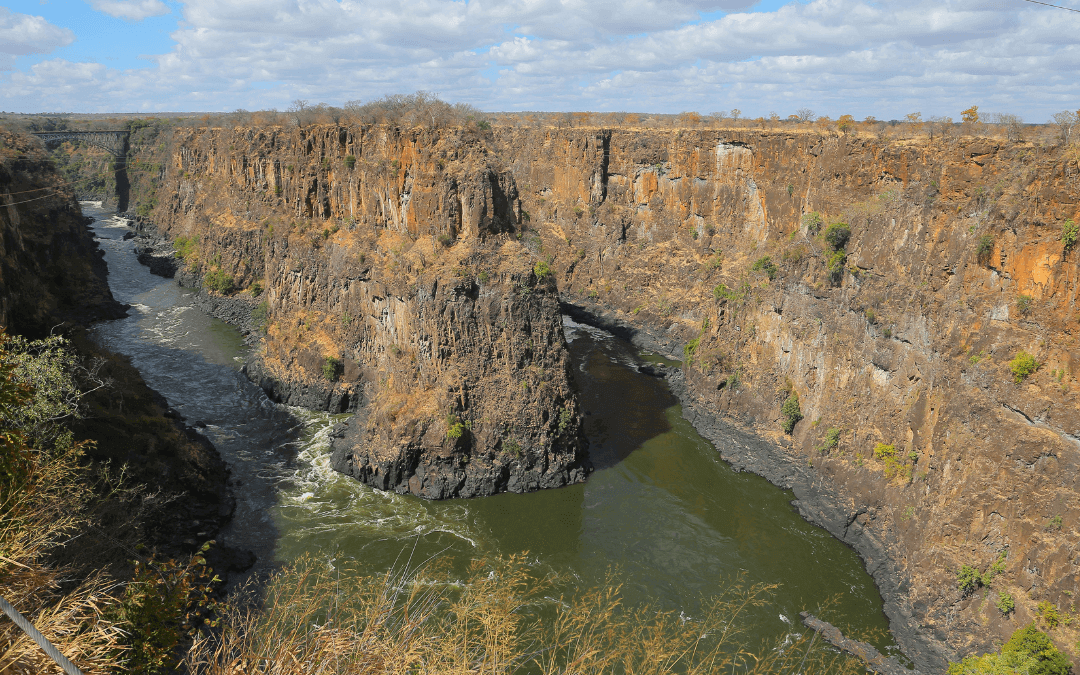Hunting in Zambia draws us into vast landscapes where wildlife thrives and adventure calls. Known for its remote game reserves and healthy animal populations, Zambia offers an authentic African hunting experience that’s both challenging and rewarding.
We find that Zambia stands out for its variety of game and unspoiled terrain. The country’s hunting areas are carefully managed to support conservation and provide opportunities for ethical hunts. As we explore African hunting listings, Zambia remains a top choice for those seeking a genuine connection to Africa’s wild side.
[DYNAMIC-BLOGTABLEOFCONTENT]
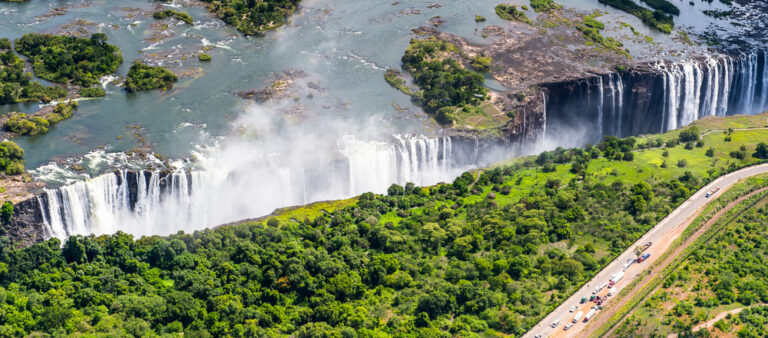
Key Takeaways
-
Zambia offers a premier hunting destination with diverse game species, including lion, leopard, Cape buffalo, elephant, sable antelope, and endemic species like Kafue lechwe and Cookson’s wildebeest.
-
Strict wildlife management and ethical hunting regulations, overseen by the Zambia Wildlife Authority (ZAWA), ensure sustainable hunting that supports conservation and funds local communities.
-
Hunting seasons in Zambia run from May to November, with the dry season (June to October) providing optimal conditions for tracking and harvesting game.
-
Choosing licensed operators and securing proper permits for hunting and firearms is essential to comply with Zambian law and ensure a legal, smooth experience.
-
Hunting in Zambia not only delivers authentic African safaris on unfenced, wild land, but also brings significant benefits to rural communities through job creation and meat distribution.
-
Zambia hunting safaris are best prepared with proper gear, health precautions against malaria, and attention to travel logistics, ensuring both comfort and safety in the wilderness.
Understanding Hunting in Zambia
Hunting in Zambia stands out for its mix of strict wildlife management, diverse game species, and real African wilderness. We see more hunters every year choosing Zambia hunting safaris for the chance to take part in conservation and experience world-class big game in some of the last true free-range regions left in Africa. Here’s what sets the adventure apart.
Zambia’s Wildlife Management System
-
Zambia enforces strong hunting regulations. Strict quotas help keep animal populations stable, with only mature, non-breeding animals eligible for hunting.
-
Zambia Wildlife Authority (ZAWA) monitors all hunts, issuing permits and overseeing ethical practices.
-
Conservation funding from hunting goes directly to anti-poaching, habitat maintenance, and communities living nearby.
Unique Game Species and Hunting Types
-
Zambia dangerous game hunting involves Cape buffalo, lion, leopard, and elephant. Many hunters travel here specifically for Cape buffalo hunting Zambia and the tough tracking required.
-
Zambia plains game hunting covers rare species such as sable antelope, Cookson’s wildebeest, Kafue lechwe, and more.
-
Trophy quality is high throughout the country. For example, Kafue lechwe hunting and Cookson’s wildebeest hunting deliver distinct Zambian trophies not found elsewhere.
Authentic Safari Environments
-
Most Zambia hunting safaris take place on unfenced, free-range land. This keeps the experience genuine and challenging.
-
Top areas include Luangwa Valley hunting for big cats and buffalo, Kafue National Park hunting for high-density herds, and Bangweulu Swamps hunting for unique swamp antelope.
-
Each region offers its own game and landscapes, letting hunters pick specific Zambia hunting packages matched to their interests.
Local Benefits and Community Support
-
Hunting in Zambia creates jobs for locals as trackers, chefs, skinners, and support staff. This brings direct income to rural areas.
-
Meat from successful hunts is given to local communities, improving food security.
-
Economically, hunting drives investment into remote regions with few other income streams.
Choosing Zambia Hunting Packages
-
Zambia hunting packages are designed to suit different skill levels and goals, from those wanting Zambia plains game hunting to seasoned adventurers after Zambia dangerous game hunting.
-
Packages often cover guiding, lodging, logistics, and transfers, taking the stress out of planning.
-
Flexibility lets hunters focus on the experience—adapting to different seasons, game availability, or special interests like sable antelope hunting Zambia.
Fast Facts: Hunting in Zambia
|
Fact |
Details |
|---|---|
|
Hunting Areas |
Luangwa Valley, Kafue National Park, Bangweulu Swamps |
|
Main Game Species |
Lion, leopard, elephant, Cape buffalo, sable antelope |
|
Regulating Authority |
Zambia Wildlife Authority (ZAWA) |
|
Population Conservation Focus |
Mature, non-breeding animals hunted |
|
Community Impact |
Job creation, meat donation, rural investment |
We believe hunting in Zambia offers unmatched value—unique trophies, genuine adventure, ethical standards, and a direct positive impact. If you’re weighing your next hunting destination, Zambia welcomes those ready for a real connection to Africa’s land and wildlife.
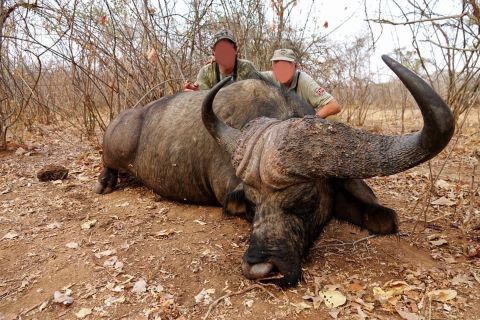
Exploring Top Hunting Regions in Zambia
When we talk about hunting in Zambia, the country’s most iconic regions stand out for both game diversity and the authentic feel of a true African safari. Each area offers unique ecosystems, notable species, and distinctly memorable experiences.
Luangwa Valley
Luangwa Valley hunting delivers a top-tier adventure for those seeking both Zambia dangerous game hunting and Zambia plains game hunting. We find thriving populations of lion, Cape buffalo, elephant, and leopard—making it a go-to for lion hunting Zambia, Cape buffalo hunting Zambia, and leopard hunting Zambia.
-
Rivers, floodplains, and Mopane woodlands create the perfect habitat for big game hunts.
-
Hunters often pursue endemic species such as Cookson’s wildebeest, making Cookson’s wildebeest hunting a highlight here.
-
Unfenced landscapes and remote valleys offer challenging free-range experiences with minimal human interference.
-
Community-focused hunting means your safari actively supports local livelihoods and conservation.
Kafue Region
Kafue National Park hunting appeals to those after a mixture of classic safari scenery and rare species. The region’s mix of open floodplains, woodlands, and the vast Kafue Flats encourages both Zambia plains game hunting and big game opportunities.
-
Kafue lechwe hunting is exclusive to this region—Kafue lechwe are a sought-after trophy for collectors of rare African antelope.
-
Sable antelope hunting Zambia is particularly rewarding here, with mature bulls offering excellent quality.
-
Proximity to Kafue National Park helps maintain healthy game populations by allowing constant wildlife movement between hunting areas and protected reserves.
-
Our Zambia hunting packages in Kafue often include options for buffalo, leopard, and a variety of plains game.
Bangweulu Swamps
Bangweulu Swamps hunting stands out for those targeting rare species in an unusual habitat. We see hunters drawn to this region for both adventure and unique game.
-
The area is famous for black lechwe and Zambezi sitatunga—species difficult to find elsewhere in Africa.
-
Seasoned hunters also pursue tsessebe, oribi, and distinctive bird species across the floodplains and reed beds.
-
Difficult terrain and remoteness make every successful hunt especially memorable, while the experience supports local conservation initiatives.
-
Bangweulu Swamps hunting offers a chance to experience a challenging wetland ecosystem while adding rare trophies to your collection.
We see that choosing the right destination can shape your entire Zambia hunting safari, from the type of game available to the landscapes you’ll traverse. Our offerings cover the full spectrum, allowing every hunter to tailor their experience to personal goals and skill level.
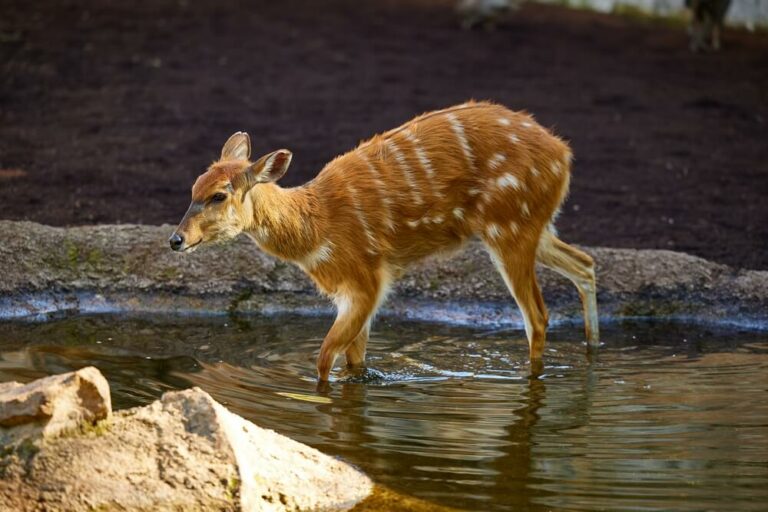
Identifying Popular Game Species in Zambia
When planning Zambia hunting safaris, knowing which species you can pursue is key. We see two main categories for hunting in Zambia such as dangerous game and plains game, each offering unique challenges and trophy opportunities.
Dangerous Game Species
Zambia dangerous game hunting draws adventure seekers from across the world. We’ve highlighted the country’s most sought-after species below:
Lion
Lion hunting in Zambia is famous for large, healthy populations, especially in places like Luangwa Valley. We often find lions roaming thick bush, presenting a test requiring patience and expert tracking.
Leopard
Leopard hunting in Zambia is best in the Luangwa Valley, one of Africa’s top regions for this stealthy cat. Success rates stay high thanks to careful quota management and skilled guides who know the animal’s secretive habits.
Cape Buffalo
Cape buffalo hunting in Zambia challenges even experienced hunters. Buffalo are abundant in regions like Kafue National Park, the Lower Zambezi, and Luangwa Valley. We respect their unpredictable nature and the excitement they deliver.
Elephant
Elephant hunting in Zambia targets Africa’s largest land mammal. Most elephant hunts take place in the Luangwa and Zambezi Valleys. We know these smart, wary animals require both skill and caution.
Additional Dangerous Game
Hippopotamus and Nile crocodile are also available for those wanting to expand their Zambia hunting packages. Both species are common near major river systems throughout the hunting concessions.
Plains Game Species
Zambia plains game hunting is just as rewarding, giving hunters a wide selection of unique antelope and other game not easily found elsewhere in Africa.
Sable Antelope
Sable antelope hunting in Zambia stands out in the Kafue and Luangwa areas, offering the chance for exceptional trophies.
Kafue Lechwe
Kafue lechwe hunting focuses on wetlands like the Kafue Flats. These antelope are endemic to Zambia, making them a top target for those seeking a unique trophy.
Cookson’s Wildebeest
Cookson’s wildebeest hunting is exclusive to the Luangwa Valley. We consider this sub-species a rare gem for collectors and those wanting something beyond the usual plains game.
Other Plains Game
We also encounter large herds of kudu, impala, puku, roan antelope, hartebeest, and oribi. Each species can be found in specific regions: for example, roan and sable concentrate in Western Zambia and Kafue, while black lechwe and sitatunga are special attractions in the Bangweulu Swamps.
Key Plains Game Species in Zambia
|
Species |
Main Hunting Area |
Unique Feature |
|---|---|---|
|
Sable Antelope |
Kafue National Park, Luangwa |
Impressive horns, iconic color |
|
Kafue Lechwe |
Kafue Flats |
Endemic to Zambia |
|
Cookson’s Wildebeest |
Luangwa Valley |
Subspecies unique to Zambia |
|
Roan Antelope |
Western Zambia, Kafue |
Large and powerful |
|
Black Lechwe |
Bangweulu Swamps |
Limited range, high density |
|
Puku |
Luangwa Valley, Bangweulu |
Found near waterways |
|
Oribi |
Luangwa Valley |
Small, agile antelope |
We see that Zambia hunting safaris offer the chance to pursue some of Africa’s rarest and most exciting game—often in settings that remain wild and unspoiled. Whether targeting dangerous game or plains species, Zambia stands out for unmatched diversity, adventure, and the promise of a true African hunting experience.
Navigating Hunting Seasons and Climate Considerations
Hunting in Zambia revolves around understanding seasonal patterns and climate nuances. Planning is key for those aiming to enjoy Zambia hunting safaris or specific pursuits like lion hunting Zambia, Cape buffalo hunting Zambia, and Kafue lechwe hunting. Let’s break down what you need to know.
Hunting Seasons in Zambia
Timing your hunt can make or break your safari experience. Zambia’s regulated hunting season runs annually from May 1 to November 30, with peak game movement typically from June through mid-October. During this dry season:
-
Game species, including Cape buffalo, elephant, and sable antelope, are easier to track thanks to the thinning of bush and animal movement toward permanent water sources.
-
Luangwa Valley hunting and Kafue National Park hunting are at their best, as drier weather brings wildlife out in concentrated spots.
-
The Zambia Wildlife Authority (ZAWA) enforces species-specific regulations—minimum hunt lengths for dangerous game like lion or elephant may apply, especially for packages involving multiple trophy animals or rare game like Cookson’s wildebeest.
Table: Zambia Hunting Season Snapshot
|
Month |
Open Season? |
Best For |
Climate |
|---|---|---|---|
|
May |
Yes |
Early Zambia plains game hunting |
Cool, moderate dry |
|
June-Oct |
Yes |
Peak Zambia dangerous game hunting |
Dry, mild to warm |
|
November |
Yes |
Late elephant hunting Zambia |
Warmer, rain possible |
|
Dec–April |
No |
Off-season |
Wet, camps usually close |
Climate and Environmental Factors
Don’t underestimate how much Zambia’s climate shapes your hunt. The country has three main seasons: the cool-dry (May–August), the hot-dry (September–November), and the rainy season (December–April). Here’s how each affects Zambia hunting packages and your in-field comfort:
-
Cool Dry (May–August): Mornings can be chilly, but hunting conditions are mild and game tracking is easier. It’s a favorite for Kafue lechwe hunting and Bangweulu Swamps hunting.
-
Hot Dry (September–November): Heat ramps up, bush thins out further, and water is scarce—making it the best time for lion hunting Zambia and leopard hunting Zambia, as big cats often move during cooler parts of the day.
-
Rainy Season (December–April): Most operators close camps as tracks become impassable, wildlife disperses, and hunting is suspended for conservation.
Climate Prep Tips for Hunters
What should you consider before booking Zambia hunting safaris? Preparation goes beyond picking a hunt date:
-
Dress in layers—temperatures swing from cold at dawn to hot by midday during peak hunting months.
-
Bring waterproof gear if hunting near the late season.
-
Opt for durable, neutral-toned clothing for stalking and proper blending into Zambia’s distinctive bush.
-
Stay hydrated—especially during hot, dry months.
-
Always factor in travel delays during early or late season when weather can turn roads to mud.
Regional Differences to Keep in Mind
While general patterns hold, each hunting area has unique microclimates and timelines for peak activity:
-
Luangwa Valley hunting delivers high game density in mid-dry season, optimizing both rifle and bow hunt methods.
-
Kafue National Park hunting thrives from June to August, when cooler nights draw wildlife out at sunrise.
-
Bangweulu Swamps hunting targets are most accessible as swamps recede in early dry months, easing the challenge of difficult terrain.
So, when we talk about hunting in Zambia, remember it’s all about syncing with nature’s rhythms. Planning with attention to regulated seasons, regional quirks, and realistic climate prep ensures your Zambia hunting experience is both ethical and extraordinary.
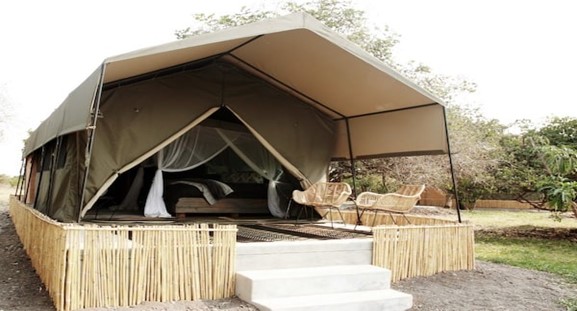
Obtaining Licenses and Meeting Legal Requirements
Before setting off on your Zambia hunting safari, it’s essential to understand the country’s licensing process and legal rules. Meeting all requirements means we can hunt with confidence, knowing we’re sticking to Zambia’s ethical and conservation-focused approach.
Hunting Permits
To hunt in Zambia, we must secure a valid hunting permit ahead of time.
-
Every foreign hunter needs a permit issued by the Zambia Wildlife Authority (ZAWA) before any hunt.
-
Hunters must be at least 18 years old and possess a current passport.
-
Applications require proof of firearm handling skills and liability insurance.
-
Hunting licenses specify the species (e.g., Cape buffalo, leopard, Kafue lechwe) and the particular area (like Luangwa Valley or Kafue National Park).
-
Only licensed safari operators and registered outfitters can arrange legal hunts and export trophies.
-
Individual quotas for dangerous game and plains game are outlined on each license.
Firearm and Ammunition Regulations
Firearms, ammunition, and bows are closely regulated in Zambia, ensuring safety and sustainable wildlife management.
-
Import permits are mandatory for all rifles, shotguns, or bows brought into the country.
-
Firearms must meet minimum caliber requirements; for example, a .375 caliber is needed for elephant hunting in Zambia, while .300 is the legal minimum for species like lion or leopard.
-
Automatic weapons and handguns are strictly prohibited.
-
Ammunition must be locked and matches the firearm declared on the import permit.
-
Bow hunters, including those seeking sable antelope hunting or Cookson’s wildebeest hunting, must obtain a Temporary Firearms Import Permit from ZAWA.
-
Shooting from vehicles or within 250 meters of any motorized craft is not allowed.
Trophy Export and Import Rules
Trophy export is a regulated process designed to protect species and keep Zambia’s legal hunting at the highest standard.
-
All trophies from Zambia hunting safaris must pass inspection by ZAWA officials before export.
-
Export paperwork must match species and quotas listed on the original license.
-
For threatened species like elephant and leopard, CITES permits are required for international transport, including returning to the US or other countries.
-
Only trophies from mature, non-breeding animals are eligible, in keeping with conservation guidelines.
-
It’s mandatory to follow all packaging, veterinary, and customs rules to avoid delays.
By following these steps for licenses, firearms, and trophy rules, we can fully enjoy the adventure of Zambia dangerous game hunting, knowing all activities are safe, ethical, and legal.
Preparing for a Zambia Hunting Safari
Getting ready for a Zambia hunting safari is all about smart planning and knowing what to expect. By packing the right gear, understanding health precautions, and organizing your travel logistics, you set yourself up for an outstanding safari in some of Africa’s most iconic hunting areas.
Packing Essentials
Packing for hunting in Zambia means focusing on practicality and compliance with local regulations. We always want to feel comfortable and equipped while in the field.
-
Neutral or camouflage clothing: Pack lightweight, breathable gear for hot days and a set of warmer clothes for chilly mornings or evenings, especially during June and July.
-
Reliable footwear: Well-worn boots and a few pairs of thick socks help us cover varied ground during anything from sable antelope hunting in the Kafue to leopard hunting in Zambia’s Luangwa Valley.
-
Hunting gear: Bring dependable rifles and optics. Check firearm import permit rules before traveling, as authorities require paperwork for rifles and ammunition.
-
Accessories: Quality binoculars (8×30 or 10×40), headlamp or flashlight with extra batteries, first aid kit, and a small backpack are all necessary.
-
Personal items: Sunscreen, insect repellent, chapstick, waterproof bags, and rehydration tablets keep us comfortable in the bush.
-
Documents and money: Keep travel and hunting permits, identification, and enough cash (in Kwacha) secure and handy.
-
Tech: Camera with memory cards, cellphone (with local SIM), and travel adapters for keeping devices charged and ready.
Health and Safety Tips
Staying healthy and safe during Zambia hunting safaris is a priority for every hunter.
-
Malaria prevention: Zambia is a malaria-risk area. We recommend speaking to a doctor about antimalarial medication and packing long-sleeved shirts, pants, and insect repellent.
-
Vaccinations: Common travel vaccines such as hepatitis, tetanus, and typhoid are advised for those traveling for Kafue lechwe hunting, Cookson’s wildebeest hunting, or other big game experiences.
-
Hydration and sun safety: Drink plenty of water, especially during the hot, dry months. Wear hats and use high-SPF sunscreen to avoid heat exhaustion.
-
Emergency protocols: Zambia hunting packages include camps equipped with medical kits and communications like satellite phones. Guides are also trained in field safety, providing peace of mind during activities like Cape buffalo hunting in Zambia or leopard tracking.
-
Travel insurance: Make sure we have comprehensive coverage for medical emergencies, evacuation, and hunting-specific situations.
Accommodation and Travel Logistics
Efficient travel plans and comfortable stays are crucial to a smooth Zambia hunting experience.
-
Camp options: Choose from luxury stone lodges or classic tented camps. Most spots, like those used for Luangwa Valley hunting or Bangweulu Swamps hunting, feature modern amenities, ensuite bathrooms, and well-prepared meals.
-
Locations: Accommodations are often located within or near Zambia’s key hunting areas, making it easy to pursue everything from Zambia dangerous game hunting to plains game treks without long commutes.
-
Transfers and flights: Arrival usually means flying into Lusaka or Ndola, then taking a charter flight or road transfer into your chosen region. Zambia hunting packages often include assistance with these arrangements.
-
Local staff: Meet professional guides, trackers, and camp staff who know the terrain and can support any hunting adventure, from lion hunting Zambia to Kafue National Park hunting.
-
Tips and culture: It’s courteous to tip staff and respect local customs—something that ensures a positive relationship with those caring for us during our stay.
Ready to focus on finding that trophy Cape buffalo, pursuing an elephant, or enjoying a Kafue lechwe hunt? Careful preparation makes hunting in Zambia memorable and enjoyable from day one.
Embracing Conservation and Sustainable Hunting Practices
Hunting in Zambia stands out due to its strong conservation focus and commitment to responsible, ethical pursuits. We work under regulations designed and enforced by the Zambia Wildlife Authority (ZAWA), which oversee every step of Zambia hunting safaris. Wondering how these efforts really help nature and local communities? Let’s break it down.
Strict Quotas and Wildlife Management
-
Hunters follow strict quotas set by ZAWA. These quotas are based on field research and monitor population trends for species like Cape buffalo, lion, leopard, elephant, and sable antelope. Only a set number of permits are issued for activities such as lion hunting Zambia or elephant hunting Zambia each season.
-
Authorities require hunters to target mature animals past their prime breeding age. This helps maintain population stability, especially for species pursued in Zambia dangerous game hunting.
Community and Conservation Benefits
-
Each Zambia hunting safari directly funds anti-poaching patrols, wildlife protection, and habitat upkeep. Revenue from hunting permits is used by ZAWA and stakeholders for managing protected areas.
-
Employment opportunities are created for locals as trackers, skinners, chefs, and camp staff. The meat from harvests is shared with communities around places like Luangwa Valley and Kafue National Park, supporting food security.
Eco-Friendly Hunting Experiences
-
Most safari areas, including Luangwa Valley hunting and Bangweulu Swamps hunting, are unfenced. This allows wildlife to thrive naturally and offers hunters an authentic, fair-chase adventure.
-
Operators brief all visitors on sustainable hunting practices. We cover basic regulations, species-specific rules, and respect for habitats before every outing.
Conservation-Focused Safari Packages
-
We design Zambia hunting packages to prioritize wildlife health and long-term sustainability. Whether your interest is Kafue lechwe hunting, Cookson’s wildebeest hunting, or plains game, every hunt operates within the lawful framework.
-
Ethical operations build trust and preserve Zambia’s global reputation for transparent, conservation-friendly hunting experiences.
Transparency and Oversight
Want to see some quick facts?
|
Conservation Metric |
Description |
|---|---|
|
Quotas & Permit System |
Annual, species-specific, strictly enforced by ZAWA |
|
Local Jobs Created per Safari |
10–20+ (trackers, chefs, support staff) |
|
Portion of Revenue to Conservation |
Up to 70% directed to local wildlife protection |
|
Areas Focused on |
Luangwa Valley, Kafue NP, Bangweulu Swamps |
Ethical hunting in Zambia is never just about trophies. It supports real conservation, sustains cultures, and ensures the species you dream of pursuing—like sable antelope or the Kafue lechwe—have healthy, thriving wild populations for future generations. Looking for a hunt that gives back? Zambia leads by example.
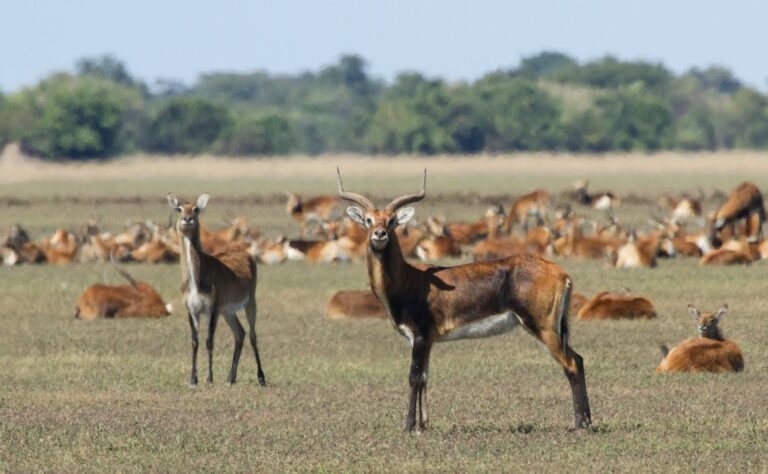
Conclusion
Choosing Zambia for our next hunting adventure means embracing a truly wild and authentic African experience. We get the chance to explore untamed landscapes, pursue rare game, and support conservation efforts that make a real difference for wildlife and local communities.
With careful planning, respect for regulations, and a focus on ethical practices, we can enjoy a rewarding safari that goes beyond the pursuit of trophies. Zambia’s unique blend of adventure, biodiversity, and responsible stewardship ensures every hunt leaves a positive mark on both the land and its people.
Frequently Asked Questions
What makes Zambia a top hunting destination in Africa?
Zambia offers vast, pristine landscapes, abundant wildlife, and authentic safari experiences. Its strong wildlife management, ethical hunting practices, and diverse game species— including big game and rare plains animals—make it a premier choice for hunters seeking both adventure and a genuine connection to Africa’s wilderness.
Which permits do I need for hunting in Zambia?
All hunters require a valid hunting permit from the Zambia Wildlife Authority (ZAWA). Additional permits are needed for firearm import and trophy export. Work with a licensed safari outfitter to ensure you meet all legal requirements before your hunt.
When is the best time to hunt in Zambia?
The main hunting season in Zambia runs from May 1 to November 30. The cool-dry period (June to mid-October) is ideal, as game is more active and easier to track. Different species may be more active depending on the month and region.
What game species can I hunt in Zambia?
Zambia offers both dangerous game—like lion, leopard, Cape buffalo, and elephant—and rare plains game, including sable antelope, Kafue lechwe, and Cookson’s wildebeest. Each region hosts different species, providing diverse hunting opportunities for all interests.
Are hunts in Zambia ethical and sustainable?
Yes. All hunting is tightly regulated by ZAWA, with quotas based on field research. Only mature animals past breeding age are targeted, ensuring population stability. Hunting also funds anti-poaching and conservation efforts, helping protect wildlife and support local communities.
Which regions in Zambia are best for hunting?
Top hunting regions include the Luangwa Valley (for lion, leopard, and buffalo), Kafue National Park (for rare species like Kafue lechwe and sable antelope), and Bangweulu Swamps (for exclusive black lechwe and Zambezi sitatunga).
How does hunting benefit local communities in Zambia?
Hunting supports jobs for local people and funds conservation projects. Meat from successful hunts is donated to villages, helping improve food security. Community involvement ensures that hunting has a positive local impact.
What should I pack for a Zambia hunting safari?
Pack lightweight, layered clothing, sturdy boots, a wide-brimmed hat, sunscreen, insect repellent, and any personal medications. Binoculars, a camera, and basic first aid supplies are also recommended for comfort and safety.
Is it safe to hunt in Zambia?
Zambia is a safe hunting destination when using a reputable outfitter. Camps are staffed by experienced guides who prioritize safety. Be aware of local wildlife, follow outfitter instructions, and prepare for variable weather and terrain.
Can I bring my own firearms on a hunting safari in Zambia?
Yes, with a Temporary Firearms Import Permit. You’ll need to submit details about your firearms (caliber, make, model, and serial numbers) in advance. Work with your safari outfitter to obtain all necessary permits and follow Zambian firearm regulations.
What are the trophy export regulations in Zambia?
Trophies must be inspected and permitted for export under ZAWA guidelines. Work with your outfitter to complete the paperwork and ensure you comply with all international and Zambian conservation laws regarding animal products.
How does Zambia’s climate affect hunting?
Zambia’s climate varies from cool-dry to hot-dry seasons during the hunting months. Cool-dry (June–August) is excellent for tracking, while hot-dry (September–October) can be better for hunting big cats. Prepare for warm days, cool nights, and periodic rain.
How do I respect local customs while hunting in Zambia?
Be courteous to local staff, learn basic greetings, and follow camp etiquette. Support conservation-minded practices and avoid culturally sensitive areas unless invited. Respect for Zambia’s people and traditions ensures a rewarding hunting experience for everyone.
